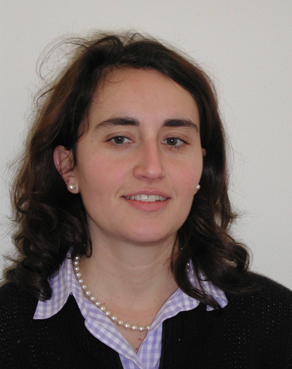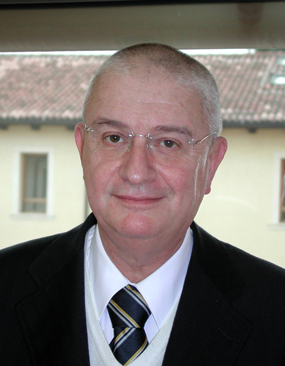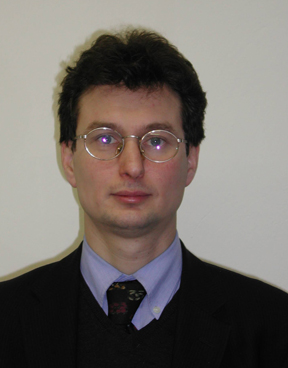Studying at the University of Verona
Here you can find information on the organisational aspects of the Programme, lecture timetables, learning activities and useful contact details for your time at the University, from enrolment to graduation.
Academic calendar
The academic calendar shows the deadlines and scheduled events that are relevant to students, teaching and technical-administrative staff of the University. Public holidays and University closures are also indicated. The academic year normally begins on 1 October each year and ends on 30 September of the following year.
Course calendar
The Academic Calendar sets out the degree programme lecture and exam timetables, as well as the relevant university closure dates..
| Period | From | To |
|---|---|---|
| 1° semestre | Oct 1, 2012 | Dec 14, 2012 |
| Periodo riservato ad eventuali recuperi di lezioni - dicembre 2012 | Dec 17, 2012 | Dec 18, 2012 |
| 2° semestre - febbraio/marzo 2013 | Feb 11, 2013 | Mar 25, 2013 |
| 2° semestre - aprile/maggio 2013 | Apr 3, 2013 | May 7, 2013 |
| Periodo riservato ad eventuali recuperi di lezioni - maggio 2013 | May 8, 2013 | May 10, 2013 |
| Session | From | To |
|---|---|---|
| Sessione straordinaria 12/13 - studenti f.c. - dicembre 2012 | Dec 19, 2012 | Dec 22, 2012 |
| 1° appello - Sessione invernale 12/13 | Jan 7, 2013 | Jan 12, 2013 |
| 2° appello - Sessione invernale 12/13 | Feb 4, 2013 | Feb 9, 2013 |
| Sessione straordinaria 12/13 - studenti f.c. - marzo 2013 | Mar 26, 2013 | Mar 28, 2013 |
| 1° appello - Sessione estiva 12/13 | May 13, 2013 | May 18, 2013 |
| 2° appello - Sessione estiva 12/13 | Jun 10, 2013 | Jun 15, 2013 |
| 3° appello - Sessione estiva 12/13 | Jul 8, 2013 | Jul 13, 2013 |
| 1° appello - Sessione autunnale 12/13 | Aug 29, 2013 | Sep 4, 2013 |
| 2° appello - Sessione autunnale 12/13 | Sep 24, 2013 | Sep 30, 2013 |
| Session | From | To |
|---|---|---|
| Termine presentazione tesi di laurea - settembre 2012 | Sep 28, 2012 | Sep 28, 2012 |
| Sessione autunnale 12/13 | Oct 22, 2012 | Oct 23, 2012 |
| Termine presentazione tesi di laurea - gennaio 2013 | Jan 9, 2013 | Jan 9, 2013 |
| Sessione invernale 12/13 | Jan 31, 2013 | Feb 1, 2013 |
| Termine presentazione tesi di laurea - marzo 2013 | Feb 28, 2013 | Feb 28, 2013 |
| Sessione invernale 12/13 - marzo 2013 | Mar 21, 2013 | Mar 25, 2013 |
| Termine presentazione tesi di laurea - luglio 2013 | Jun 10, 2013 | Jun 10, 2013 |
| Sessione estiva 12/13 | Jul 4, 2013 | Jul 5, 2013 |
| Termine presentazione tesi di laurea - settembre 2013 | Aug 29, 2013 | Aug 29, 2013 |
| Sessione estiva 12/13 - settembre 2013 | Sep 20, 2013 | Sep 23, 2013 |
| Period | From | To |
|---|---|---|
| Ognissanti | Nov 1, 2011 | Nov 1, 2011 |
| Festa dell'Immacolata Concezione | Dec 8, 2012 | Dec 8, 2012 |
| Vacanze di Natale | Dec 23, 2012 | Jan 6, 2013 |
| Vacanze di Pasqua | Mar 29, 2013 | Apr 2, 2013 |
| Festa della Liberazione | Apr 25, 2013 | Apr 25, 2013 |
| Festa dei Lavoratori | May 1, 2013 | May 1, 2013 |
| Festa Santo Patrono | May 21, 2013 | May 21, 2013 |
| Festa della Repubblica | Jun 2, 2013 | Jun 2, 2013 |
Exam calendar
Exam dates and rounds are managed by the relevant Law Teaching and Student Services Unit.
To view all the exam sessions available, please use the Exam dashboard on ESSE3.
If you forgot your login details or have problems logging in, please contact the relevant IT HelpDesk, or check the login details recovery web page.
Academic staff
 giovanni.alberti@univr.it
giovanni.alberti@univr.it
 mariacaterina.baruffi@univr.it
mariacaterina.baruffi@univr.it

Crivelli Elisabetta
 elisabetta.crivelli@univr.it
elisabetta.crivelli@univr.it
 +39 045 8028808
+39 045 8028808

Dalla Massara Tommaso
 tommaso.dallamassara@univr.it
tommaso.dallamassara@univr.it
 +39 045 8028810
+39 045 8028810
 paola.dongili@univr.it
paola.dongili@univr.it
 roberto.flor@univr.it
roberto.flor@univr.it
 +39 045 8028812
+39 045 8028812

Patrono Paolo
 paolo.patrono@univr.it
paolo.patrono@univr.it
 +39 045 8028813
+39 045 8028813
Riguzzi Maurizio
 maurizio.riguzzi@univr.it
maurizio.riguzzi@univr.it
 +39 045 8028852
+39 045 8028852
 lorenzo.salvatore@univr.it
lorenzo.salvatore@univr.it
 girolamo.sciullo@univr.it
girolamo.sciullo@univr.it
Strano Silvana
 silvana.stranoligato@univr.it
silvana.stranoligato@univr.it
 +39 045 8028856
+39 045 8028856
Zanuso Francesca
 francesca.zanuso@univr.it
francesca.zanuso@univr.it
 +39 045 8028811
+39 045 8028811
Study Plan
The Study Plan includes all modules, teaching and learning activities that each student will need to undertake during their time at the University.
Please select your Study Plan based on your enrollment year.
1° Year
| Modules | Credits | TAF | SSD |
|---|
Terminologia giuridica di una lingua straniera2° Year activated in the A.Y. 2013/2014
| Modules | Credits | TAF | SSD |
|---|
3° Year activated in the A.Y. 2014/2015
| Modules | Credits | TAF | SSD |
|---|
| Modules | Credits | TAF | SSD |
|---|
Terminologia giuridica di una lingua straniera| Modules | Credits | TAF | SSD |
|---|
| Modules | Credits | TAF | SSD |
|---|
Legend | Type of training activity (TTA)
TAF (Type of Educational Activity) All courses and activities are classified into different types of educational activities, indicated by a letter.
Sociology of Economic Labour Processes (2014/2015)
Teaching code
4S02532
Teacher
Coordinator
Credits
6
Also offered in courses:
- Sociology of Economic Labour Processes of the course Combined Bachelor's + Master's degree in Law
Language
Italian
Scientific Disciplinary Sector (SSD)
SPS/09 - ECONOMIC SOCIOLOGY AND SOCIOLOGY OF WORK AND ORGANIZATIONS
Period
1° Periodo di lezioni dal Oct 1, 2014 al Dec 16, 2014.
Learning outcomes
Aim of the course is the knowledge of changes taking place in the world of work in relation to the organizational and content dimensions, and the acquisition of the main keys to understanding the sociology of work. Through the study of specific themes at the center of the research activity of the sociology of work are identified concepts, modes of interpretation, analysis tools of the main topics related to work, allowing the acquisition of the necessary elements to understand the relationship that is being building among work, people and society.
Program
The course is divided into two parts. The first part dealt with general aspects of work. Retracing reflections made by a number of authors who have characterized the development of sociology of work, are addressed the specificity of the discipline and the contribution that over the years it has given to interpret contents and changes in the work. In the second part we take into account the different dimensions of work (employment, unemployment, labor market, organizational models, training, etc..), paying particular attention to the changes taking place.
Examination Methods
The final exam is taken in oral form and requires the knowledge of the recommended texts:
M. La Rosa (a cura di), Il lavoro nella sociologia (Nuova edizione riveduta e integrata), Carocci, Roma, 2007.
G. Gosetti (a cura di), Lavoro e lavori. Strumenti per comprendere il cambiamento, FrancoAngeli, Milano, 2011.
During the lessons the teacher will provide supplementary materials.
For the deeper analysis of some aspects covered during the course it is recommended to read one of the following texts (which are not subject to examination):
D. Gallie, G. Gosetti, M. La Rosa, Qualità del lavoro e della vita lavorativa. Cosa è cambiato e cosa sta cambiando, FrancoAngeli, Milano, 2012.
G. Gosetti, Lavoro frammentato, rischio diffuso. Lavoratori e prevenzione al tempo della flessibilità, FrancoAngeli, Milano, 2012.
G. Gosetti, Lavorare nell’impresa artigiana. Cultura del lavoro e qualità della vita lavorativa, FrancoAngeli, Milano, 2014.
Teaching materials e documents
-
 PROGRAMMA E TESTI CONSIGLIATI
(msword, it, 35 KB, 24/07/14)
PROGRAMMA E TESTI CONSIGLIATI
(msword, it, 35 KB, 24/07/14)
Type D and Type F activities
Modules not yet included
Career prospects
Module/Programme news
News for students
There you will find information, resources and services useful during your time at the University (Student’s exam record, your study plan on ESSE3, Distance Learning courses, university email account, office forms, administrative procedures, etc.). You can log into MyUnivr with your GIA login details: only in this way will you be able to receive notification of all the notices from your teachers and your secretariat via email and soon also via the Univr app.
Internships
Internships are aimed at enabling students to gain direct knowledge of the world of work and to acquire specific professional skills.
Internships are carried out under the responsibility of an individual lecturer, and can be carried out in professional firms, public administration bodies and companies recognised by the University of Verona.
Any CFU credits gained by doing internships will be recognised and recorded by the University in accordance with the relevant University regulations in force (Regolamento d’Ateneo per il riconoscimento dei crediti maturati negli stage universitari).
For further information on internships, please go to: https://www.univr.it/it/i-nostri-servizi/stage-e-tirocini.






































